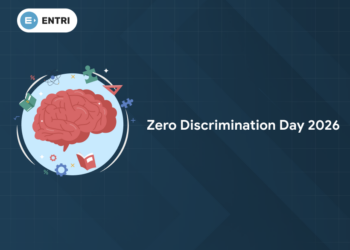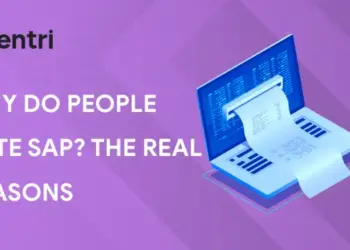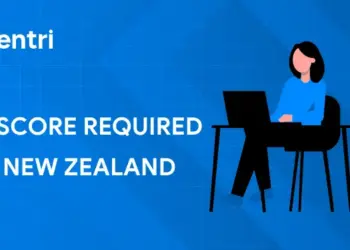Table of Contents
Throughout the country, thousands of boys and girls are sexually abused and exploited each year. At home, school, or in the community, a kid is the victim of sexual abuse or exploitation. Protection of Children from Sexual Offences (POCSO) Act, 2012 was introduced in order to combat the heinous crimes of sexual exploitation and abuse of children.
The POCSO Act was enacted to protect children from sexual offences. POCSO Act 2012 was notified in the Gazette of India on June 20, in the year 2012. A comprehensive law, the POCSO Act of 2012, was passed to protect children from the crimes of sexual assault, pornography, and sexual harassment. The Act encompasses both penetrative and non-penetrative assault in its definition of the many types of sexual abuse. The Act incorporates child-friendly systems for reporting and documenting evidence to protect the interests of a child under the age of 18.
Attempt Free GK Mock test ! Download Entri App!
POCSO Act, 2012
On November 14, 2012, the POCSO Act, which was created expressly to address different offences relating to child sexual abuse and child pornography, went into effect. There are 46 provisions in the Act. It broadens the range of crimes against children that can be reported that aren’t covered by the Indian Penal Code (IPC). The POCSO Act, 2012 establishes guidelines for the child-friendly recording of a child’s statement by the police and the court.
It was passed in 2012 under the Ministry of Women and child development. The Act was revised in 2019 to include provisions for stiffer penalties for certain offences in an effort to deter offenders and guarantee that children grow up in safety, security, and with a sense of dignity.
Objectives of POCSO Act, 2012
- Protection of minors under 18 from pornography, sexual assault, and harassment.
- Protecting a child’s interests at various phases, including reporting, recording evidence, investigating, and trying offenders.
- As soon as the Special Juvenile Police Unit receives the complaint, relief and rehabilitation are provided.
- Provides for special courts to handle sexual cases quickly.
Provisions related to the POCSO Act, 2012
The POCSO Act was passed to safeguard minors under the age of 18 from sexual assault, abuse, harassment, and pornography.
- According to the act, the investigation in each case must be finished in two months (starting from the date the FIR was filed) and the trial must be held within six months.
- According to the Act, a kid is someone who is younger than the age of eighteen.
- In addition to a fine, it calls for strict imprisonment for a term that must not be less than 10 years but may go as far as life in prison as a penalty for serious penetrative sexual assault.
- It also includes precautions to prevent the child from becoming a victim of the legal system once more.
- The Act also mandates that such cases be reported. A person who is aware of the offence has a legal obligation to report the sexual abuse. Should he fail to do so, he might be sentenced to six months in jail or a fine.
- Additionally, it lays out the consequences for those who trade youngsters for sex.
- A penalty for making false complaints or spreading misleading information is also provided by the Act.
- The statute was changed in 2019 to make the minimum sentence ten years instead of the previous seven. Additionally, it states that a person who engages in penetrative sexual assault on a child under 16 will face a sentence of 20 years to life in prison and a fine.
- Under the POCSO Act of 2012, aggravated penetrative sexual assault is equivalent to aggravated rape.
- In certain aggravating circumstances, such as when the rape takes place in a relationship of trust or authority or when it results in pregnancy, a person may be charged with this offence.
Attempt Free GK Mock test ! Download Entri App!
Key features of the POCSO Act, 2012
1. Gender Neutrality
2. Defines different forms of sexual abuse
3. Stringent punishment against child trafficking
4. Covers child pornography
5. Avoid re-victimization of a child
Gender Neutrality
The POCSO Act of 2012 takes into account the welfare and best interests of both male and female children to guarantee their normal physical, emotional, intellectual, and social growth. The law does not make any distinctions based on the gender of those who abuse children sexually.
Defines different forms of sexual abuse
The POCSO Act of 2012 states that several types of sexual assault are aggravating under particular situations, such as when the victim is a minor and mentally ill or when the abuse is carried out by a person in a position of trust, such as a police officer, teacher, doctor, or family member.
Stringent punishment against child trafficking
According to the 2012 POCSO Act’s requirements, those who traffic children for sex face penalties. The maximum sentence under the law is life in jail and a fine, with more severe penalties prescribed depending on how serious the offence was.
Covers child pornography
The POCSO Act of 2012 covers the visual representation of sexual activity with a child in a video, digital, photograph, or computer-generated image that may be impossible to tell apart from a real child but nevertheless purports to show a child.
Avoid re-victimization of a child
There are sufficient safeguards in place to prevent the child from becoming a victim of the legal system once more. The Act designates a police officer to guard a youngster throughout the investigation.
Grab Study Materials to Strengthen your Knowledge in GK!! Register Here!
POCSO Act, 2012 General Guidelines
The Act outlines some fundamental guidelines that must be adhered to by everyone, including State Governments, the Kid Welfare Committee, the Police, Special Courts, NGOs, and any other professional present during the trial and assisting the child during the trial. These guidelines are as follows:
Right to life and survival: A child must be protected from all forms of physical, emotional, mental, and psychological abuse.
Best interests of the child: The child’s healthy development must be given top priority.
Right to be treated with respect and compassion: Throughout the legal procedure, children who have been victims should receive treatment that is tender and considerate.
Right to be protected from discrimination: Regardless of a child’s ethnic, religious, linguistic, or social orientation, the judicial system must be open and just and provide protection against discrimination.
Right to specific preventative measures: It is suggested that children who have experienced abuse are more likely to experience it again, so it is necessary to provide them with preventive measures and self-defense training.
Right to information: Children who are witnesses or victims of crimes must be fully informed of the legal proceedings.
Right to be heard and to express views and concerns: Every kid has the right to be heard regarding problems that directly impact them, as well as the right to voice their opinions.
Right to effective assistance: The provision of all financial, legal, counselling, health, social, and educational services, as well as physical and psychological recovery services, is required for the child’s healing.
Right to privacy: Throughout the entire pre-trial and trial process, the child’s identity and privacy must be safeguarded.
Protection from suffering throughout the legal process: Secondary victimisation and other difficulties for children during the legal process must be minimised.
Right to safety: Protection of a child victim is required before, during, and after the legal procedure.
Right to compensation: The victimised kid may receive payment for relief and rehabilitation.
Attempt Free GK Mock test ! Download Entri App!
Punishments under POCSO Act 2012
1: Who was the first woman President of India?
- The POCSO Act 2012 (Amendment Bill) was introduced in the Rajya Sabha on July 18, 2019, by Ms. Smriti Zubin Irani, the minister of women and child development. The POCSO Act of 2012 was amended in a way that significantly altered the penalties.
- A minimum of ten years in prison, with the possibility of life in prison, and a fine are the penalties for penetrative sexual assault (Section 3) on a child (Section 4). Penetrative sexual assault on a child under the age of sixteen is punishable by a term of imprisonment that must not be less than twenty years but may go as high as life in prison, meaning that the offender will spend the rest of their natural lives behind bars, in addition to being subject to a fine.
- A minimum of twenty years in jail, with the possibility of a life sentence, and a fine are the penalties for aggravated penetrative sexual assault (Section 5). (Section 6)
- Not less than three years, which may be increased to five years, and a fine for sexual assault (Section 7), which is defined as sexual contact without penetration (Section 8).
- Sexual assault without penetration has a minimum sentence of three years in jail, with a possible maximum of five years, as well as a fine.
- Aggravated sexual assault (Section 9) committed by a person in authority: Minimum sentence of five years, maximum sentence of seven years, and a fine (Section 10)
- Child Sexual Abuse (Section 11): Three Years and a Fine (Section 12)
- Using a child for pornographic purposes is punishable by a minimum of five years in prison and a fine, and by a maximum of seven years in prison and a fine if it happens again (Section 14). Paragraph 14 (1)
- Not less than 10 years for penetrating sexual assault caused by using a kid for pornographic purposes (in case of child below 16 years, not less than 20 years)
- Child pornographic use resulting in aggravated penetrative sexual assault: 20 years minimum in prison and a fine
- Not less than three years, but never less than five years, for the use of a child for pornographic purposes that result in sexual assault.
- Not less than five years, but no less than seven years, for the use of a child for pornographic purposes that results in severe sexual abuse.
- With the intent to share or transmit child pornography, anyone who stores or has access to pornographic material involving children in any form, but fails to delete, destroy, or report it to the designated authority as may be required, faces a fine of at least Rs 5,000; in the case of a second or subsequent offence, the fine is at least Rs 10,000.
- Anyone who stores or has in their possession pornographic material involving children in any form for the purpose of transmitting, propagating, displaying, or distributing at any time—apart from reporting as may be required by law or for use as evidence in court—shall be subject to one of the following punishments: Three years’ maximum in prison, a fine, or both.
- Anyone who stores or has in their possession, for commercial purposes, pornographic material depicting children in any way shall be penalised upon the first conviction: a sentence of at least three years’ jail time, with a maximum of five years, plus a fine or both. If you are convicted again, you might face a minimum of five years in prison and a maximum of seven years, as well as a fine.
Grab Study Materials to Strengthen your Knowledge in GK!! Register Here!
Free UPSKILLING Courses!
Take your first step toward mastering in-demand skills, acing interviews, and securing top-tier jobs with Entri's free upskilling courses.
Start Learning!Conclusion
Every employee who might engage with a child must undergo a quarterly police verification and background check, which is a requirement for any institution housing children or having frequent contact with them.
Such a facility needs to regularly teach staff members on child protection and safety. It must implement a child protection strategy based on the idea that there should be no tolerance for violence against kids. The state government where the organisation operates must have a child protection policy that is similar to this one.
POCSO Act FAQs
Q1. Can the POCSO Act of 2012 be used in a minor case?
Ans. The POCSO Act of 2012 is applicable to minors, yes.
Q2. Which courts will preside over the POCSO Act 2012 trials?
Ans. The District Court, High Court, and Supreme Court may review the proceedings in cases brought under the POCSO Act 2012.
Q3. What punishments are included in the POCSO Act of 2012?
Ans. According on the severity of the crime, the POCSO Act’s provisions for punishment include both jail time and a fine.
Q4. What does the POCSO Act of 2012 define as sexual harassment?
The POCSO Act of 2012 states that pornography and both penetrative and non-penetrative forms of assault constitute sexual harassment.
Q5. Who is a child under the POCSO Act of 2012?
A child is someone under the age of 18 according to the POCSO Act of 2012. It ensures that the child’s overall development—whether it be physical, emotional, intellectual, or social—by taking into account their well-being and best interests at every turn.
Attempt Free GK Mock test ! Download Entri App!
The Entri App offers exam preparation support for various banking and government exams. Anyone who wishes to ace the exams is welcome to enrol in our programme. You can realise your objective of working for the government with the assistance of our skillfully created seminars, free practise examinations, practise papers, and current affairs notes. We offer our subscribers instructional materials including top lectures, video classes, sample questions, etc. If you wish to access the entri classes, download the Entri App right away and start your trial learning.












